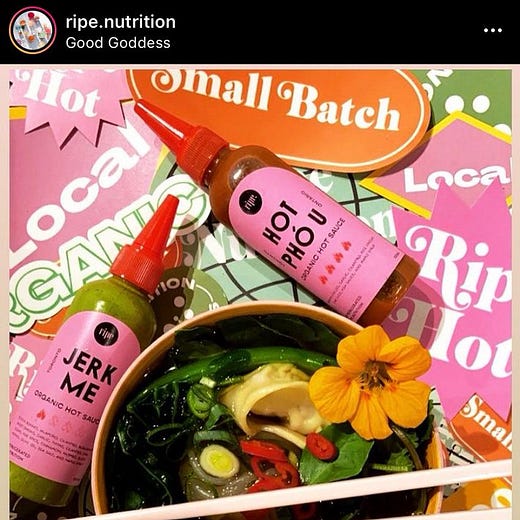Maziar Ghaderi: Unprocessed pain can turn yesterday’s victim into today’s woke despot
What those shouting “cultural appropriation!” need isn’t what woke-Twitter offers, but rather a hard-nosed therapist.
By: Maziar Ghaderi
Scrolling through my Twitter feed, I came across an accusation of racism. There’s something alluring that attracts my lizard brain when I see the word racist/racism. I bet the same neurons light up when watching the postmodern American 2020 elections or the train wreck that is the Tiger King series on Netflix. Sadly, the show turns sour for me when a public, and seemingly sincere, mea culpa actually seems to embolden the thumb-typing rabble. This leaves me to believe that these accusations have more to do with unprocessed trauma than racial justice.
One such controversy drew me in like a bloodthirsty moth to a glowing black mirror. Evelyn Kwong, a Chinese-Canadian podcaster and writer for The Toronto Star, recently posted a Twitter thread lamenting Ripe Nutrition, a white-owned downtown pop-up broth and juice bar that she felt was appropriating cuisine from cultures of colour — specifically her own. She took issue with this in part because when she was a kid, white classmates at school made fun of her Chinese food.
This tugged at my heart strings because the exact same thing happened to me with my “smelly” kebab and brown lamb stew lunches in grade school. As a way of coping with the hurt, I learned to devalue any visible element of my Persian roots and opted to put anything white on a pedestal. To this day, I cringe to think that I let bullies Stockholm Syndrome me like that, but in my defence (and in Kwong’s) any immigrant kid is like a fish out of water. I was a refugee with a hard-working pizza delivery guy for a dad and it was hard to fit into a white world that only seemed to see narrow versions of itself as suitable, and any outlier as undesirable, or at least not normal.
Within a day of Kwong’s tweet, an apparel store that was hosting Ripe Nutrition’s products ended their relationship. The following day, the shop owner, Alexandra Baird, issued what seemed to me to be quite a sincere apology on her shop’s Instagram. She accepted blame and didn’t gaslight the people of colour that were claiming to be hurt from the branding/framing of her products. She even wrote that “it isn’t the job of people of colour to educate me, a white woman on why cultural appropriation isn’t acceptable.” Baird stated that her company would immediately stop making culturally-insensitive products and that her and her entire staff would undergo cultural-sensitivity training.
Even though I don’t agree that cultural appropriation is racist, I felt a calming wave rush over me after reading Baird’s apology. It felt as if I saw Obama and Trump hug it out to the acoustic backdrop of Rodney King’s “Can’t We All Just Get Along” speech. But this blissful hippie-high only lasted until I saw some of the most up-voted comments. One commenter continued to decry her transgressions as “racist and problematic.” Baird was said to be “actively upholding white supremacy” as if the apology was written in a dead language with invisible ink. Others seemed even more angry than Kwong herself. A few people demanded that the accused donate money to local chefs and restaurants that represent the cultures she exploited, while others felt that the apology itself was “performative liberal identity politics language” and that she was profiting from the “optics of an apology.”
My mind raced in wonder. What more could she have done?
What disappoints me in these online melodramas is that there doesn't seem to be a path to redemption for the accused — even during a pandemic that is forcing small businesses to close their doors under impossible conditions, and after serving their community for years — sometimes decades.
As for the Ripe Nutrition tale, Kwong has yet to even acknowledge the steps the defendant has vowed to take to atone for her “hurtful” actions, even after clearly stating that she expects a response. It’s like calling someone to ask for a ride to the airport, and not answering the door when they pull up to your house. Refusing to accept or even acknowledge the apology comes across as nothing but a petty power play: the more the guilty try to inch their body out of the quicksand, the quicker and bigger the shaming stones thrown at them become.
Psychologist Leon F. Seltzer, Ph.D., who specializes in anger and trauma resolution, explained in Psychology Today that: “There are people whose actions and reactions toward others are determined by an overriding predilection toward vindictiveness and revenge. They might see your ‘I’m sorry’ as offering them ample justification for punishing you, that you’ve just given them a perfect excuse for retaliation.”
A younger, more insecure version of myself can relate to this feeling. I learned to formulate my own vindictive version of a protective, anti-white ethnocentrism as a way of coping with anti-brown/anti-Middle Eastern racism. After living abroad, learning new languages and, quite frankly, maturing, I began to shed the baby teeth of petty “punching up” racism and replaced it with a hard-earned self-actualization that made me more resilient to negative emotion. I haven’t looked back since.
If I hadn’t caught myself falling dangerously in love with my own desire for revenge against the ghosts of my childhood racist-bullies, I too could have wound up scraping the internet and my city streets for racist slights. And if I race-baited against whiteness consistently enough I’d soon have a following sufficiently large to bully any perceived racist into a struggle-session-style public apology. These apologies would, of course, be ignored if not rejected — like Baird’s was. We live in an environment that actually encourages and rewards this vigilante behaviour and views such attacks as brave, all under the guise of progressive antiracism.
Unprocessed pain has the potential to turn yesterday’s racialized victim into today’s woke despot, someone who uses accusations of cultural appropriation as a tool to feel powerful, or at least less small. This cultural phenomenon sets a bad precedent for race relations, sustainable reconciliation between socio-political tribes and — unknowingly to the accuser — works to prolong the release of my beloved first-generation immigrants and refugees from the traumatic spectres of our varied pasts.
What those shouting “cultural appropriation!” need isn’t what woke-Twitter offers, but rather a hard-nosed therapist that works towards a sustainable balance between one’s rights and responsibilities irrelevant of skin tone, and helps process the pain that too many of us racialized Canadians internalized in our youth. That’s the better path forward … and any of us can choose it.
Maziar Ghaderi is a Toronto-based multimedia artist, educator and writer that works with film, multimedia and interactive technology.
The Line is Canada’s last, best hope for irreverent commentary. We reject bullshit. We love lively writing. Please consider supporting us by subscribing. Follow us on Twitter @the_lineca. Fight with us on Facebook. Pitch us something: lineeditor@protonmail.com





I fail to see what the restaurant owner did wrong in the first place.
As a refugee (civil war, 1970's) immigrant to Canada, who arrived here in 1977 and grew up in a time when immigrants sank or swam (we didn't have the luxury of the immigrant services they do now), I am SO sick of these people whining and crying about racism and cultural appropriation. In arabic, we say "fadyin al ashghal" - roughly translated to "nothing better to do". It is like the freaking whining injury olympics and frankly as an immigrant, I find it embarrassing; like really embarrassing. Real racism and bigotry is hideous and ugly - making bone broth is just that - bone broth. Countless cultures across the world have variations on this recipe. Is this whiny child going to go after all of them because someone hurt her feelings? If I sound bitter and angry it is because I am. I have experienced real bigotry and racism in my life (especially after 9-11) so you'll excuse me if whining about soup just doesn't cut it. In addition, when the F did twitter become the medium by which all things are decided?